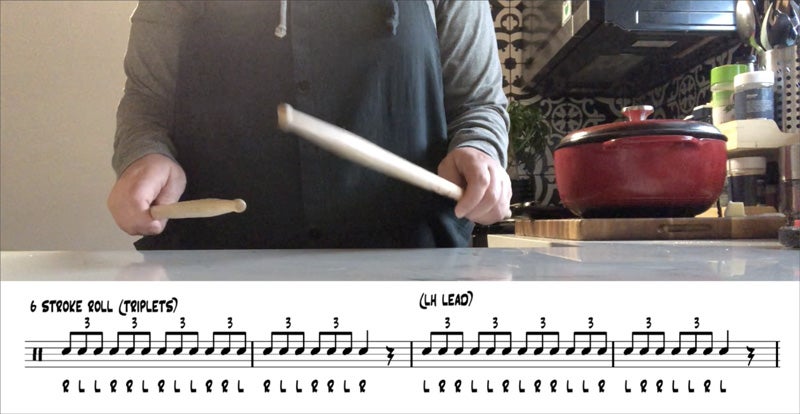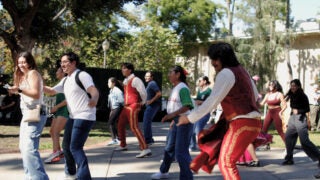Hands-on Topics Can’t Be Taught Online? Think Again
USC instructors teach drama without a stage and dissect frogs without the frogs during the age of COVID-19.
Having to suddenly teach online has tested professors everywhere, including at USC. Now imagine what it’s like for instructors in hands-on labs and creative fields like music, arts, theater and film.
Faced with logistical challenges, USC’s faculty rose to the occasion.
Take Edgar Landa ’95, for example. He teaches a popular stage combat class at the USC School of Dramatic Arts. But how could his spring semester students choreograph a dynamic fight scene without someone to slap or swing at, thanks to social distancing?
“I just told them: Beat yourself up,” Landa says.
Instructions for their solo skirmish were simple: Set up a camera or have a family member handle the cinematography. Let the punches, kicks and gouges commence. Edit together a short scene, no more than a minute long. The results were hilarious and highly creative short videos that suggest some otherworldly force took over their limbs.
“They got creative and made stories and had multiple camera angles, so I was really happy with the work I saw,” Landa says. “And they really enjoyed it. The feedback I got was they had a really good time.”
Forced to Teach Online, USC’s Faculty Uses Tech to Connect
Gorjana Bezmalinovic, lab manager of undergraduate biology classes at the USC Dornsife College of Letters, Arts and Sciences, faced a serious challenge when the pandemic forced her 800 students online. She had to teach dissection, blood-type testing and hands-on lab procedures through a computer screen.
She and her teaching assistants pulled together instructional guides, an online video game that mimicked the blood transfusion process and YouTube videos of frogs and lamb hearts going under the scalpel.
“I love helping the students,” says the 47-year-old “Mrs. B,” as she’s known around campus. “They like me, and I’m always in a good mood with them. I wouldn’t have it any other way.”
The USC Thornton School of Music’s Peter Erskine also relies on tech to teach online. Kept apart from students due to social distancing, the Grammy award-winning jazz drummer sent them YouTube videos and a play-along app he created. Students sent back their recorded performances for him to critique.
Erskine found power in simplicity, too. He showed students how to use their hands and feet to thump out rhythms. His teaching assistant, Lauren Ellis, demonstrated a similar low-tech method on YouTube: She tapped beats on her kitchen counter with a pair of drumsticks.

The pandemic brought big changes to the classroom, and schools nationwide continue to expect the unexpected. USC faculty members pursue a simple goal through it all, though. They aim to keep students engaged, curious and always learning.
Erskine and his fellow professors have found ways to teach, no matter the circumstances, because they want the best for their students.
“We’re rooting for them,” he says. “We want them to succeed.”
Allison Engel, Gary Polakovic and Karla Reid contributed to this article.



